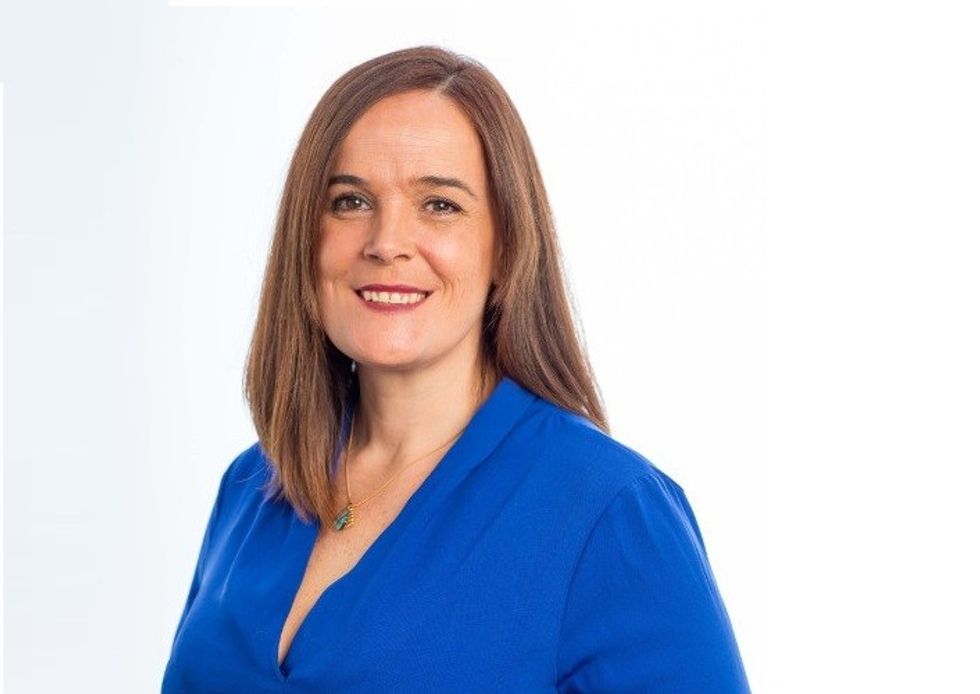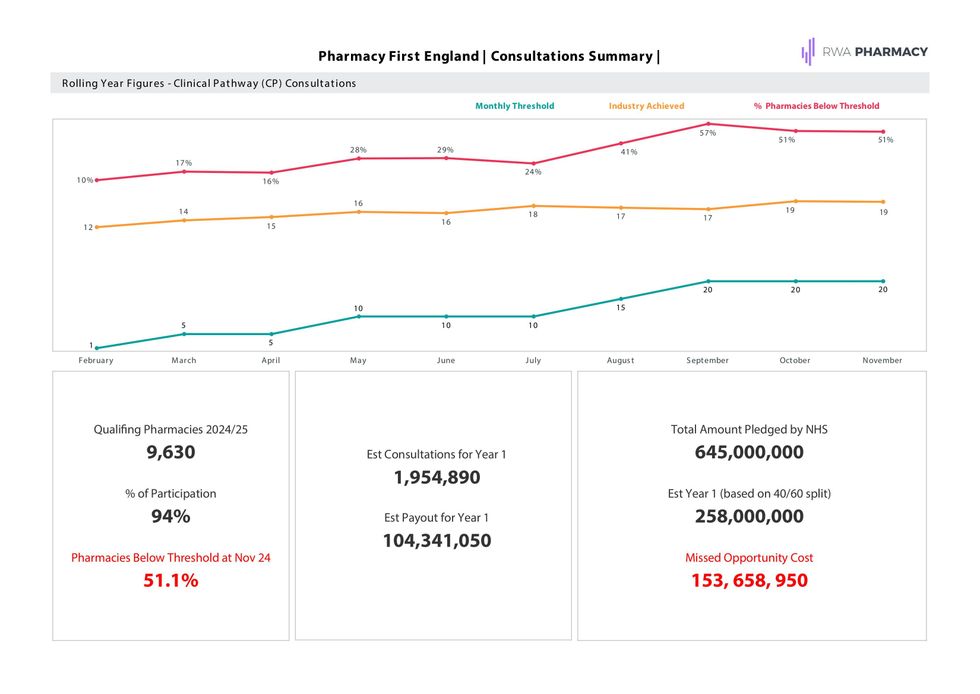By Adele Curran
We have just passed the first anniversary of Pharmacy First Services in England. The new initiative promised a new way to approach community care and much needed additional revenue opportunities for community pharmacies across England. We can now review a year’s worth of data to paint a clearer picture on whether the industry met or missed these opportunities.
You’ll remember that the NHS pledged £646 million into the Pharmacy First Service to cover the first two years. When analysing the data set, I am assuming that allowances would have been for the programme to get up and running in year one and that forecasts of support would have been weighted heavier into year two.
Analysing the data, I am estimating that payout to pharmacies within the first year of Pharmacy First sits at approx. £104,341,050. This means that only 16% of the total pledge figure will be paid. (Dec & Jan figures estimated)
While we can see the services were widely accepted among pharmacies across the UK, there were a number of concerns over the qualifying criteria, in particular the monthly threshold.
Many pharmacies throughout England were struggling to meet the consultation threshold of 20 consultations per month. There are many suggestions as to why pharmacies were struggling, some cited that the services were not promoted enough by the NHS, GPs not fully understanding it or even IT systems not set up to support it.
We saw these concerns play out last October, when the NHS decided not to up the level of consultations needed to 30 as initially planned. They did, however, up this in January to 25 consultations and plan to increase to 30 in March 2025.
The data proves these concerns were legitimate.
We can see trend of increasing thresholds and CP payouts over the past 12 months, while the percentage of pharmacies meeting the threshold and the total payout decreased.
Within the first three months of Pharmacy First Services going live (Feb 24 – April 24), there was an average of 8,250 pharmacies hitting the threshold of consultations. This average fell to 7,030 between May and end of July and fell further to an average of 4,847 between August and October.
At the same time, we can see the average count of pharmacies who missed the threshold growing throughout the year. The total missed threshold value since launch is £40,54,300, equalling an average of over £3.3m a month.
The number of consultations remains relatively stable, with a slight increase towards the end of the year. We are not seeing the type of growth here hoped for upon the start of this initiative.
As mentioned previously, many reasons for why this has happened have already been voiced.
It is hard to quantify what control community pharmacies have over this though, as it is a push service towards pharmacies.
The volume of patients coming through their doors is not within their control. Could it be that there is still a lack of awareness form patients on what is now available as a service within their community pharmacies? Is this a marketing issue? There has also been some suggestion that certain surgeries aren’t keen to encourage patients straight to the pharmacy. With criteria within the service operating on a referral basis it is clear that this could be a major factor in the inabilities to reach the thresholds and is something that may need further investigation.
If community pharmacies are unable to enhance consultations, they will continue to fall behind the acceptable threshold and it’s likely the data trends see throughout 2024, will repeat in 2025.
Pharmacy First Services offer patients a new level of care within their local community, but it is clear something isn’t quite working with the current offering. There is substantial money available for pharmacies who can solve this puzzle.
Adele Curran is the Chief Operations Officer at RWA Pharmacy

Adele Curran, Chief Operations Officer at RWA Pharmacy discussing Pharmacy First data
Adele West-Curran, Chief Operating Officer, RWA Pharmacy












